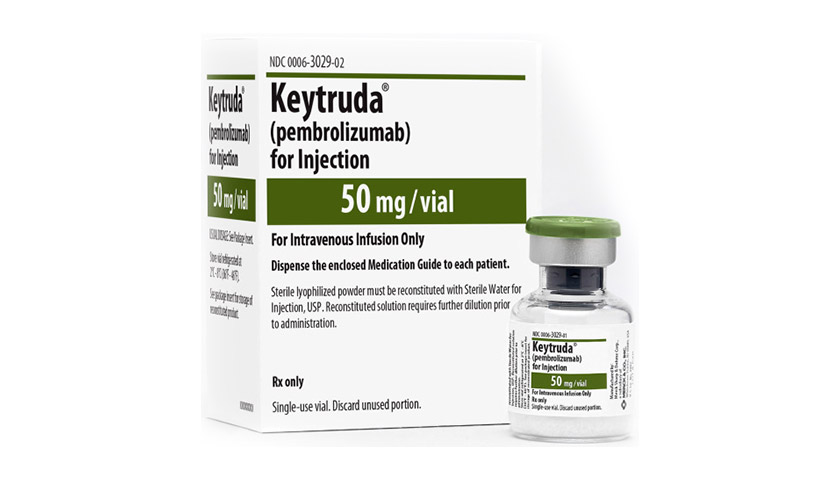Merck wins FDA nod for Keytruda as adjuvant kidney cancer treatment

Merck & Co has chalked up another win in drive to move PD-1 inhibitor Keytruda earlier in the treatment pathway for cancer, after the FDA greenlit use of the drug as post-surgery (adjuvant) therapy for renal cell carcinoma (RCC).
The checkpoint inhibitor has been approved for use after surgery in patients with RCC – the most common form of kidney cancer – who are at intermediate-high or high risk of the disease recurring. It is the first drug in the class to get approval in this setting.
Keytruda (pembrolizumab) is already approved as a first-line therapy for previously-untreated RCC in combination with Pfizer's Inlyta (axitinib) and Eisai's Lenvima (lenvatinib), both tyrosine kinase inhibitors.
Adjuvant treatment moves use of the drug into patients with earlier-stage cancer, a key strategy for Merck and other cancer immunotherapy companies as it expands the pool of patients eligible for treatment.
Merck has previously picked up FDA approvals in the adjuvant or neoadjuvant (pre-surgery) setting in triple-negative breast cancer and melanoma with lymph node involvement.
The FDA made its decision after reviewing the results of the KEYNOTE-564 trial which involved patients who had surgery to remove the kidney affected by the tumour – and in some cases the removal of lesions that had spread to other parts of the body – in an attempt to cure the cancer.
The main outcome measure was disease-free survival, which came in at almost 86% for the Keytruda group versus 76% for the placebo group at 12 months, and 77% versus 68% respectively after two years, according to data presented at this year's ASCO meeting.
Keytruda also reduced the risk for recurrence or death by a statistically significant 32% compared to placebo.
The FDA's review was conducted under its Project Orbis initiative, and included collaboration with the Australian Therapeutic Goods Administration, Health Canada and Swissmedic.
Rival companies are also developing their checkpoint inhibitors for adjuvant RCC, including Roche whose Tecentriq (atezolizumab) is in the phase 3 IMmotion010 study, and AstraZeneca which is testing its Imfinzi (durvalumab) alone and in combination with CTLA4 drug trelemilumab in the RAMPART trial.
Bristol-Myers Squibb meanwhile is running the CheckMate-914 study, looking at its PD-1 drug Opdivo (nivolumab) alone and in combination with CTLA4 therapy Yervoy (ipilimumab) in this setting.












